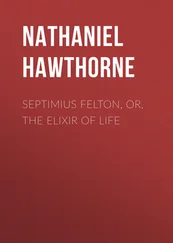Title Page THE SCARLET LETTER by Nathaniel Hawthorne
THE CUSTOM-HOUSE: INTRODUCTORY TO "THE SCARLET LETTER"
I. THE PRISON DOOR
II. THE MARKET-PLACE
III. THE RECOGNITION
IV. THE INTERVIEW
V. HESTER AT HER NEEDLE
VI. PEARL
VII. THE GOVERNOR'S HALL
VIII. THE ELF-CHILD AND THE MINISTER
IX. THE LEECH
X. THE LEECH AND HIS PATIENT
XI. THE INTERIOR OF A HEART
XII. THE MINISTER'S VIGIL
XIII. ANOTHER VIEW OF HESTER
XIV. HESTER AND THE PHYSICIAN
XV. HESTER AND PEARL
XVI. A FOREST WALK
XVII. THE PASTOR AND HIS PARISHIONER
XVIII. A FLOOD OF SUNSHINE
XIX. THE CHILD AT THE BROOKSIDE
XX. THE MINISTER IN A MAZE
XXI. THE NEW ENGLAND HOLIDAY
XXII. THE PROCESSION
XXIII. THE REVELATION OF THE SCARLET LETTER
XXIV. CONCLUSION
Imprint
THE SCARLET LETTER
by Nathaniel Hawthorne
THE CUSTOM-HOUSE: INTRODUCTORY TO "THE SCARLET LETTER"
It is a little remarkable, that—though disinclined to talk over much of myself and my affairs at the fireside, and to my personal friends—an autobiographical impulse should twice in my life have taken possession of me, in addressing the public. The first time was three or four years since, when I favoured the reader—inexcusably, and for no earthly reason that either the indulgent reader or the intrusive author could imagine—with a description of my way of life in the deep quietude of an Old Manse. And now—because, beyond my deserts, I was happy enough to find a listener or two on the former occasion—I again seize the public by the button, and talk of my three years' experience in a Custom-House. The example of the famous "P. P., Clerk of this Parish," was never more faithfully followed. The truth seems to be, however, that when he casts his leaves forth upon the wind, the author addresses, not the many who will fling aside his volume, or never take it up, but the few who will understand him better than most of his schoolmates or lifemates. Some authors, indeed, do far more than this, and indulge themselves in such confidential depths of revelation as could fittingly be addressed only and exclusively to the one heart and mind of perfect sympathy; as if the printed book, thrown at large on the wide world, were certain to find out the divided segment of the writer's own nature, and complete his circle of existence by bringing him into communion with it. It is scarcely decorous, however, to speak all, even where we speak impersonally. But, as thoughts are frozen and utterance benumbed, unless the speaker stand in some true relation with his audience, it may be pardonable to imagine that a friend, a kind and apprehensive, though not the closest friend, is listening to our talk; and then, a native reserve being thawed by this genial consciousness, we may prate of the circumstances that lie around us, and even of ourself, but still keep the inmost Me behind its veil. To this extent, and within these limits, an author, methinks, may be autobiographical, without violating either the reader's rights or his own.
It will be seen, likewise, that this Custom-House sketch has a certain propriety, of a kind always recognised in literature, as explaining how a large portion of the following pages came into my possession, and as offering proofs of the authenticity of a narrative therein contained. This, in fact—a desire to put myself in my true position as editor, or very little more, of the most prolix among the tales that make up my volume—this, and no other, is my true reason for assuming a personal relation with the public. In accomplishing the main purpose, it has appeared allowable, by a few extra touches, to give a faint representation of a mode of life not heretofore described, together with some of the characters that move in it, among whom the author happened to make one.
In my native town of Salem, at the head of what, half a century ago, in the days of old King Derby, was a bustling wharf—but which is now burdened with decayed wooden warehouses, and exhibits few or no symptoms of commercial life; except, perhaps, a bark or brig, half-way down its melancholy length, discharging hides; or, nearer at hand, a Nova Scotia schooner, pitching out her cargo of firewood—at the head, I say, of this dilapidated wharf, which the tide often overflows, and along which, at the base and in the rear of the row of buildings, the track of many languid years is seen in a border of unthrifty grass—here, with a view from its front windows adown this not very enlivening prospect, and thence across the harbour, stands a spacious edifice of brick. From the loftiest point of its roof, during precisely three and a half hours of each forenoon, floats or droops, in breeze or calm, the banner of the republic; but with the thirteen stripes turned vertically, instead of horizontally, and thus indicating that a civil, and not a military, post of Uncle Sam's government is here established. Its front is ornamented with a portico of half-a-dozen wooden pillars, supporting a balcony, beneath which a flight of wide granite steps descends towards the street. Over the entrance hovers an enormous specimen of the American eagle, with outspread wings, a shield before her breast, and, if I recollect aright, a bunch of intermingled thunderbolts and barbed arrows in each claw. With the customary infirmity of temper that characterizes this unhappy fowl, she appears by the fierceness of her beak and eye, and the general truculency of her attitude, to threaten mischief to the inoffensive community; and especially to warn all citizens careful of their safety against intruding on the premises which she overshadows with her wings. Nevertheless, vixenly as she looks, many people are seeking at this very moment to shelter themselves under the wing of the federal eagle; imagining, I presume, that her bosom has all the softness and snugness of an eiderdown pillow. But she has no great tenderness even in her best of moods, and, sooner or later—oftener soon than late—is apt to fling off her nestlings with a scratch of her claw, a dab of her beak, or a rankling wound from her barbed arrows.
The pavement round about the above-described edifice—which we may as well name at once as the Custom-House of the port—has grass enough growing in its chinks to show that it has not, of late days, been worn by any multitudinous resort of business. In some months of the year, however, there often chances a forenoon when affairs move onward with a livelier tread. Such occasions might remind the elderly citizen of that period, before the last war with England, when Salem was a port by itself; not scorned, as she is now, by her own merchants and ship-owners, who permit her wharves to crumble to ruin while their ventures go to swell, needlessly and imperceptibly, the mighty flood of commerce at New York or Boston. On some such morning, when three or four vessels happen to have arrived at once usually from Africa or South America—or to be on the verge of their departure thitherward, there is a sound of frequent feet passing briskly up and down the granite steps. Here, before his own wife has greeted him, you may greet the sea-flushed ship-master, just in port, with his vessel's papers under his arm in a tarnished tin box. Here, too, comes his owner, cheerful, sombre, gracious or in the sulks, accordingly as his scheme of the now accomplished voyage has been realized in merchandise that will readily be turned to gold, or has buried him under a bulk of incommodities such as nobody will care to rid him of. Here, likewise—the germ of the wrinkle-browed, grizzly-bearded, careworn merchant—we have the smart young clerk, who gets the taste of traffic as a wolf-cub does of blood, and already sends adventures in his master's ships, when he had better be sailing mimic boats upon a mill-pond. Another figure in the scene is the outward-bound sailor, in quest of a protection; or the recently arrived one, pale and feeble, seeking a passport to the hospital. Nor must we forget the captains of the rusty little schooners that bring firewood from the British provinces; a rough-looking set of tarpaulins, without the alertness of the Yankee aspect, but contributing an item of no slight importance to our decaying trade.
Читать дальше












